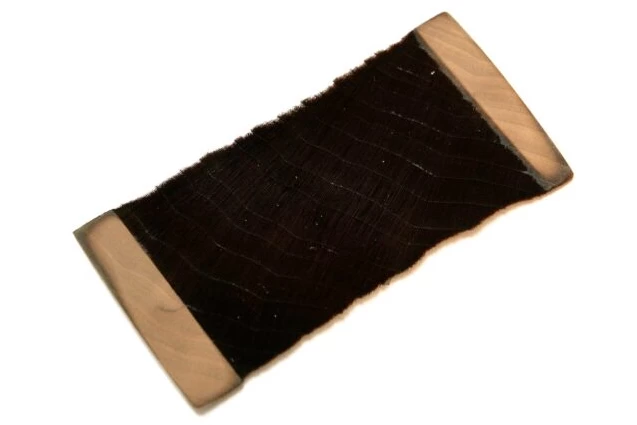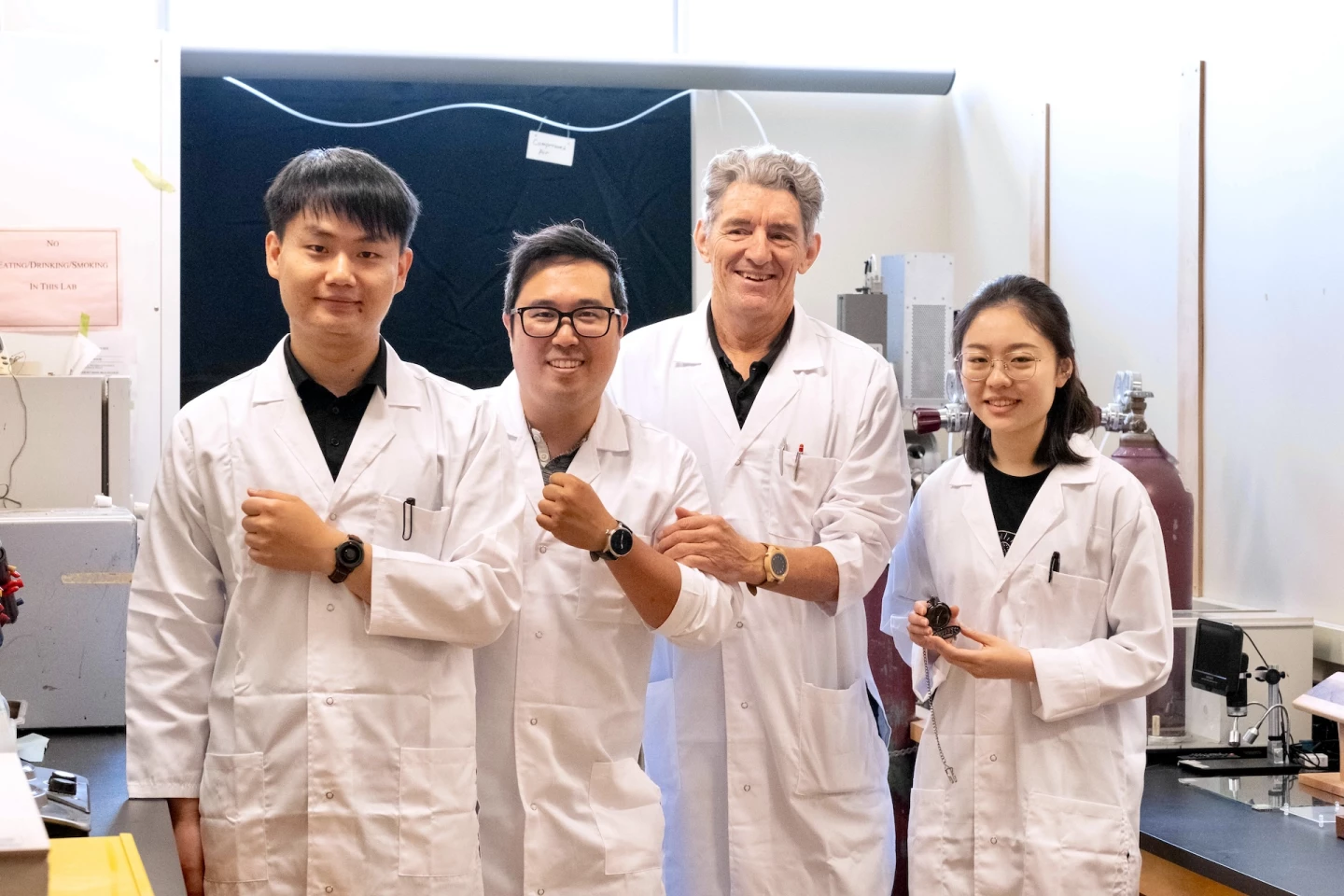Vantablack, which is the world's darkest material, could be in for some competition. Canadian scientists have created a super-black substance that has the potential to be cheaper, hardier and easier to manufacture … and it's made out of wood.
Trademarked as Nxylon ("niks-uh-lon") the material takes its name from Nyx, the Greek goddess of the night, and xylon, which is the Greek word for wood. It is being developed at the University of British Columbia, by a team led by Prof. Philip Evans.
Nxylon was discovered accidentally, when Evans and PhD student Kenny Cheng were trying to make wood more water-repellent via exposure to high-energy plasma. When the surface of sawn basswood-tree samples received the plasma treatment, the cut-open ends of the porous cells that made up the wood changed in structure.
Putting it simply, that new light-absorbing structure caused the entire treated surface layer of the wood to take on a velvety "extremely black" appearance. When the material was analyzed by colleagues at Texas A&M University, it was found to reflect less than 1% of visible light. By contrast, regular black paint typically reflects at least 2.5%.

And what's more, it was determined that wood from other species of trees – besides basswood – can also be used. The surface layer that changes structure is only about 0.5 to 1 mm thick. This means that a multitude of thin sheets of Nxylon could be produced from a single slab of wood.
Among other things, the material may find use in better-performing telescopes and other optical devices, more efficient solar cells, and even consumer goods such as jewelry and luxury watches. In the case of the latter two, Nxylon could be a less expensive and more sustainable alternative to black hardwoods like ebony and rosewood.

Although Nxylon currently reflects slightly more light than Vantablack, Evans believes that should change once the technology is developed further. Additionally, whereas Vantablack is composed of fragile, costly, vertically oriented forests of carbon nanotubes, such is not the case with Evans' material.
"Nxylon is made from a renewable material, wood, and we could make about 200,000 watch faces from one basswood tree," he tells us. "We have worked out how to make the surface less fragile. Nxylon sheets can be made in 30 minutes […] I’m sure we could speed up the process with a device designed for commercial production."
A paper on the research was recently published in the journal Advanced Sustainable Systems. Plans call for the technology to be commercialized via a spinoff company, the Nxylon Corporation of Canada.
Source: UBC





